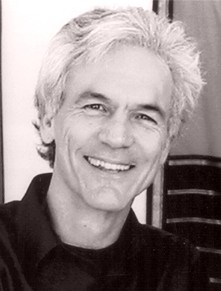A Quote by Imre Kertesz
If the world is an objective reality that exists independently of us, then humans themselves, even in their own eyes, are nothing more than objects, and their life stories merely a series of disconnected historical accidents, which they may wonder at, but which they themselves have nothing to do with.
Related Quotes
All writers write about themselves, just as the old storytellers chose to tell stories that spoke to and about themselves. They call it the world, but it is themselves they portray. The world of which they write is like a mirror that reflects the inside of their hearts, often more truly than they know.
...[Changers] were a threat to identity, a challenge to the individualism even of those they were never likely to impersonate. It had nothing to do with souls or physical or spiritual possession; it was, as the Idirans well understood, the behavouristic copying of another which revolted. Individuality, the thing which most humans held more precious than anything else about themselves, was somehow cheapened by the ease with which a Changer could ignore it as a limitation and use it as a disguise.
The main condition for the achievement of love is the overcoming of one's narcissism. The narcissistic orientation is one in which one experiences as real only that which exists within oneself, while the phenomena in the outside world have no reality in themselves, but are experienced only from the viewpoint of their being useful or dangerous to one. The opposite pole to narcissism is objectivity; it is the faculty to see other people and things as they are, objectively, and to be able to separate this objective picture from a picture which is formed by one's desires and fears.
There is nothing more terrible, I learned, than having to face the objects of a dead man. Things are inert: that have meaning only in function of the life that makes use of them. When that life ends, the things change, even though they remain the same. […] they say something to us, standing there not as objects but as remnants of thought, of consciousness, emblems of the solitude in which a man comes to make decisions about himself.
Driven by the forces of love, the fragments of the world seek each other so that the world may come into being. ... the universal gravity of bodies, ... is merely the reverse or shadow of that which really moves nature. Love in all its subtleties is nothing more, and nothing less, than the more or less direct trace marked on the heart of the element by the psychical convergence of the universe upon itself.
It is more than probable that I am not understood; but I fear, indeed, that it is in no manner possible to convey to the mind of the merely general reader, an adequate idea of that nervous intensity of interest with which, in my case, the powers of meditation (not to speak technically) busied and buried themselves, in the contemplation of even the most ordinary objects of the universe.
Let us record the atoms as they fall upon the mind in the order in which they fall, let us trace the pattern, however disconnected and incoherent in appearance, which each sight or incident scores upon the consciousness. Let us not take it for granted that life exists more fully in what is commonly thought big than in what is commonly thought small.
If the objects who serve us feel ecstacy, they are much more often concerned with themselves than with us, and our own enjoyment is consequently impaired. The idea of seeing another person experience the same pleasure reduces one to a kind of equality which spoils the unutterable charms that come from despotism.
This harmony that human intelligence believes it discovers in nature - does it exist apart from that intelligence? No, without doubt, a reality completely independent of the spirit which conceives it, sees it or feels it, is an impossibility. A world so exterior as that, even if it existed, would be forever inaccessible to us. But what we call objective reality is, in the last analysis, that which is common to several thinking beings, and could be common to all; this common part, we will see, can be nothing but the harmony expressed by mathematical laws.


































